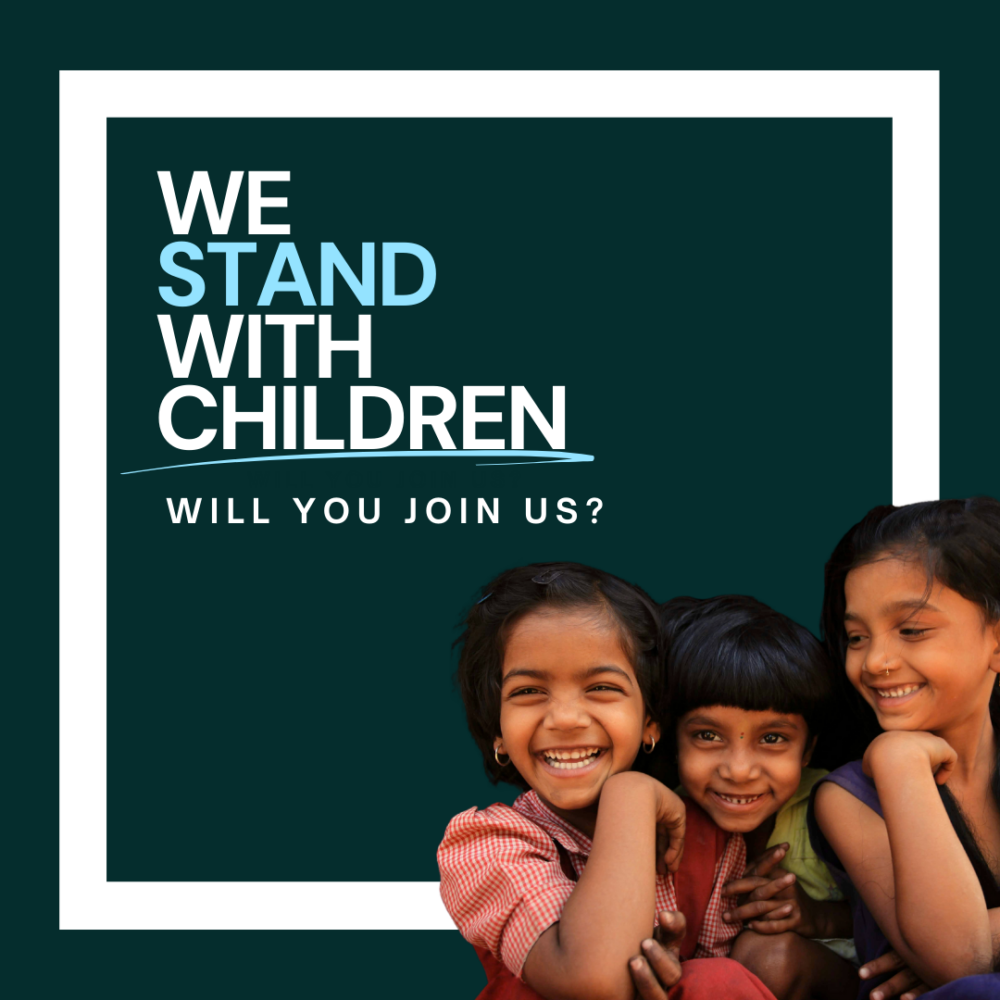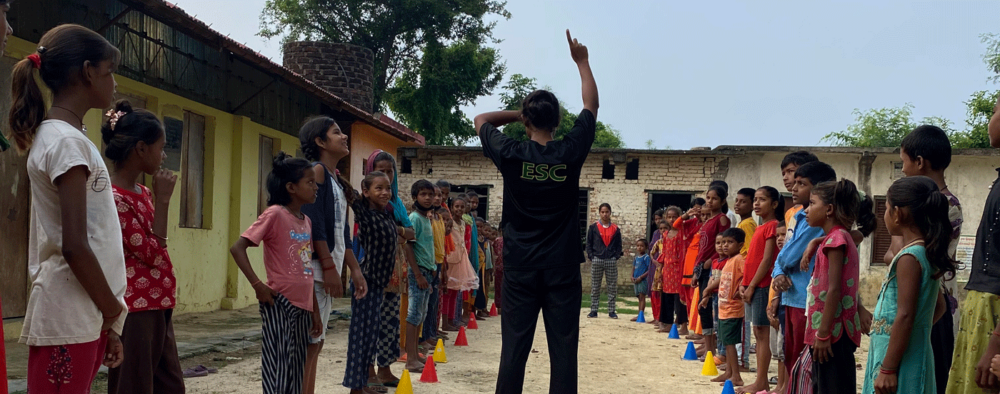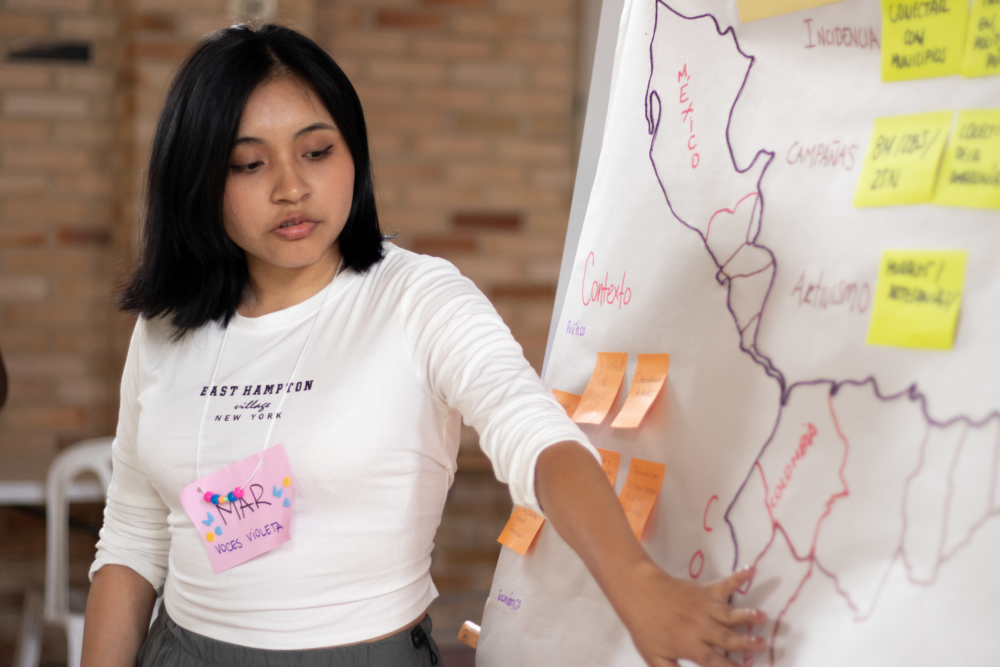
El poder de la juventud
La congelación del financiamiento de la ayuda exterior de Estados Unidos está amenazando la estabilidad de las organizaciones comunitarias y su trabajo vital en favor de los niños y jóvenes de todo el mundo.
Obtenga más información sobre nuestra respuesta de emergencia.
Educación, poder juvenil
Durante el pico de la pandemia de COVID-19, los cierres prolongados de escuelas y las regulaciones de quedarse en casa interrumpieron los derechos fundamentales de los niños a la educación y juego fisicoMientras los niños y sus aliados lidian con los efectos de estas perturbaciones, algunas organizaciones locales están utilizando aprendizaje basado en el juego como una estrategia eficaz para ayudar a los niños a recuperarse de la pérdida de aprendizaje inducida por la pandemia y tener éxito académicamente.
Dos de los socios de GFC en la India y Nepal han adoptado el aprendizaje basado en el juego para promover el acceso a una educación de calidad para los niños en edad escolar, en particular los de comunidades marginadas. Estas organizaciones colaboran con escuelas y comunidades locales para motivar a los niños a aprender a través de deportes como el fútbol, el netball, el tenis de mesa, el cricket y el voleibol.
[image_caption caption=”Alumnos de la escuela secundaria St. Joseph's High School en Jokalandi, Bhubaneswar, India, calentando antes de una sesión. © Pro Sport Development” float=””]
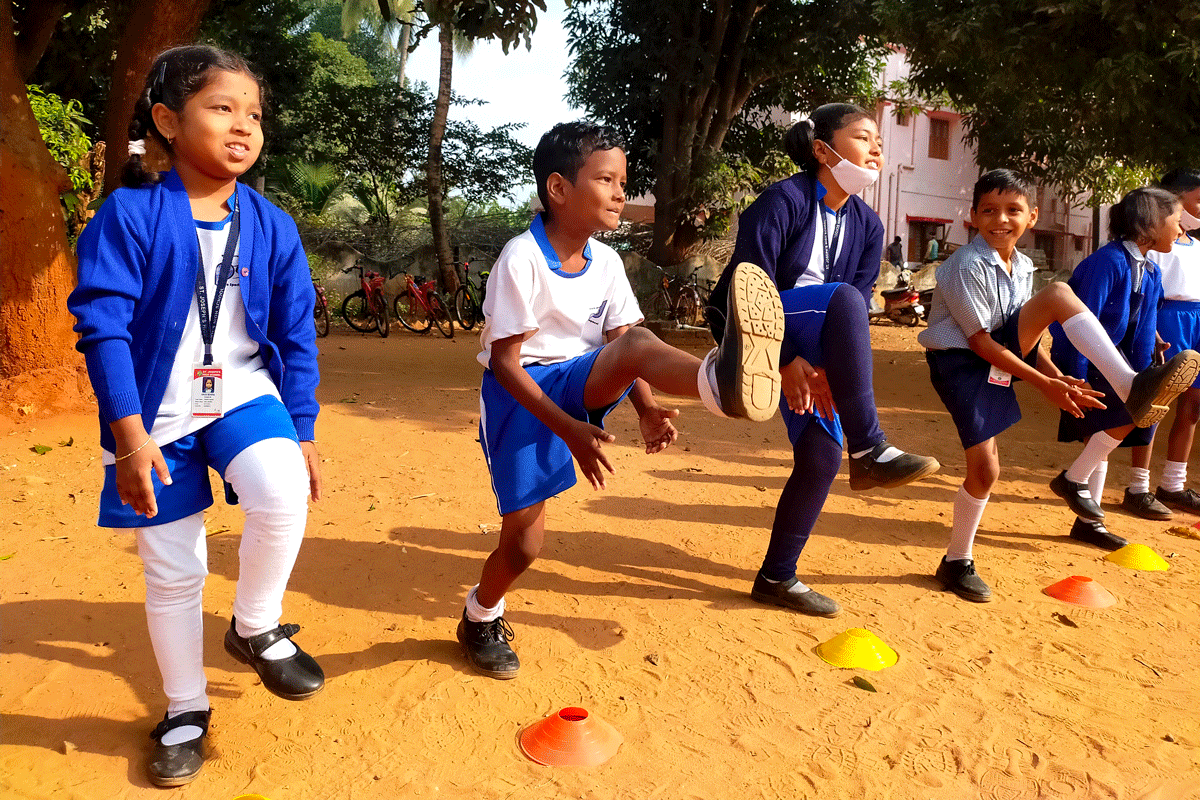
[/caption de imagen]
Por ejemplo, Desarrollo del deporte profesional (PSD) es una empresa social que utiliza el deporte como una herramienta poderosa para el desarrollo integral de niños y jóvenes, incluidos los niños indígenas del estado de Odisha, en el este de la India. PSD tiene como objetivo promover una cultura deportiva entre los jóvenes (especialmente los jóvenes de comunidades marginadas) que sea inclusiva, sostenible y atractiva.
“Garantizamos el acceso de los niños a los deportes para que ejerzan su derecho fundamental a jugar y desarrollen ciertas habilidades cruciales”, afirmó el director y fundador del PSD, Suheil Tandon. “Ofrecemos deportes utilizando un enfoque basado en valores para ayudar a los niños a aprender sobre los valores deportivos, como el trabajo en equipo, el juego limpio, la integridad, la igualdad y la inclusión, que les ayudarán más adelante en la vida”.
El Programa de Deportes Comunitarios del PSD recluta a niñas y niños como una forma de romper la percepción de que las niñas no deberían participar en deportes. Crea un espacio seguro donde los niños y las niñas interactúan entre sí desde una edad muy temprana y durante la adolescencia. El PSD también utiliza los deportes para promover cuestiones que afectan los derechos de los niños, incluidos el matrimonio infantil y los estereotipos de género.
[image_caption caption=”Alumnos de la escuela Amedakar Sikshya Kendra en Dumduma, Bhubaneswar, India, realizando una prueba de alfabetización física. © Pro Sport Development” float=””]
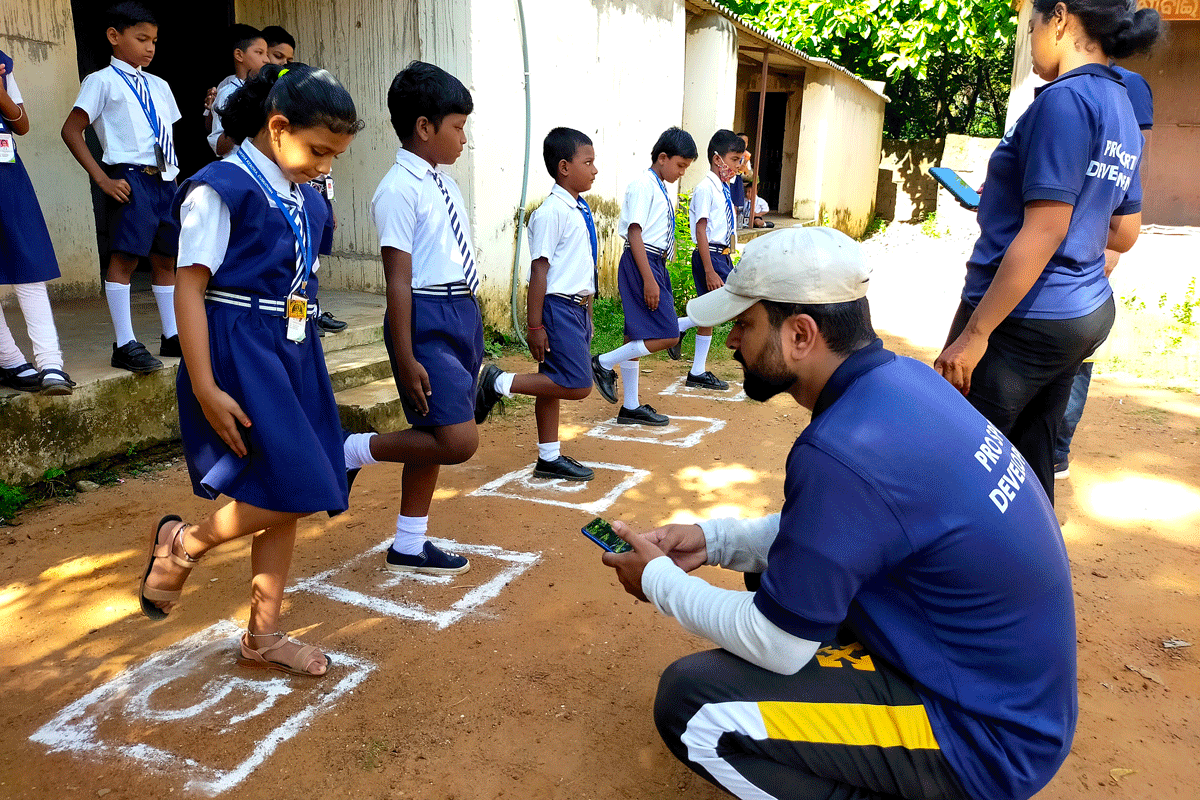
[/caption de imagen]
El PSD ha enfrentado desafíos con la aceptación del programa debido al conocimiento limitado de los beneficios del aprendizaje basado en el juego. Sin embargo, su modelo está ganando terreno lentamente en la India con su reconocimiento en el Política Nacional de Educación de la India 2020, que contempla el deporte como parte del currículo y el aprendizaje integrado al deporte como una forma de fomentar el desarrollo integral de los niños.
“El deporte y la actividad física rara vez se consideran derechos fundamentales que puedan promover el bienestar y ser utilizados para lograr resultados de desarrollo más allá del terreno de juego”, dijo Tandon. “Esa es una percepción que estamos tratando de cambiar”.
En Nepal, Arruinarse Utiliza el fútbol para empoderar a las niñas y promover su desarrollo integral en el distrito de Kapilvastu. “Atoot” significa “inquebrantable” en nepalí y la organización crea oportunidades para que las niñas desarrollen su confianza, sus habilidades de liderazgo, su trabajo en equipo y sus habilidades sociales, al tiempo que trabaja con las familias y los miembros de la comunidad para crear conciencia sobre la importancia de la educación de las niñas.
[image_caption caption=”Las niñas que participan en los programas de Atoot disfrutan de intercambios multiculturales y de coaprendizaje con invitados internacionales. © Atoot” float=””]
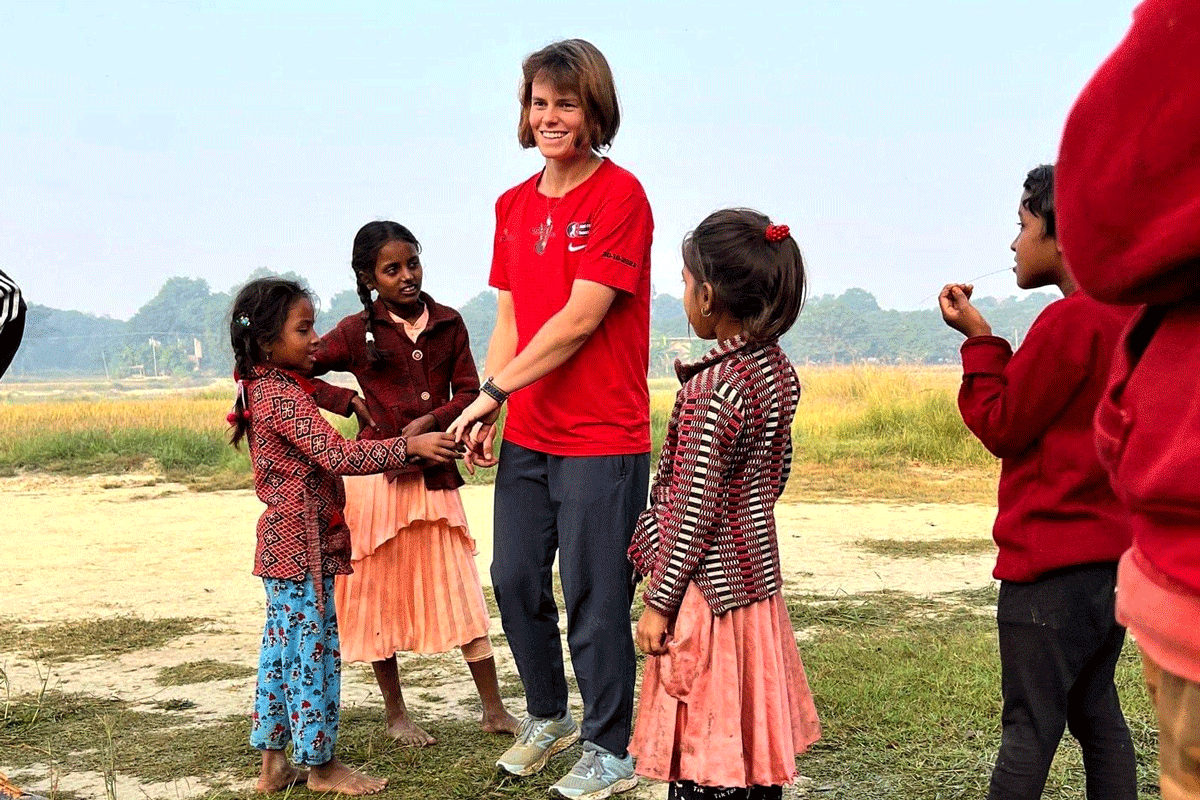
[/caption de imagen]
“Nuestra organización aprovecha las oportunidades deportivas y educativas para empoderar a las niñas en las zonas rurales de Nepal”, explicó Sarah Van Vooren, cofundadora y directora ejecutiva de Atoot. “Estas niñas están marginadas en sus comunidades y no tienen ninguna oportunidad. Usamos el poder del fútbol para unir a las niñas y crear un espacio seguro donde surja un ecosistema de empoderamiento”.
Atoot trabaja con más de 200 niñas de entre 5 y 18 años. A través de sesiones de fútbol, la organización ayuda a las niñas a aprender habilidades sociales (como la comunicación y el trabajo en equipo) y enseña inglés y nepalí.
“También organizamos talleres de habilidades para la vida, donde discutimos algunos problemas socioculturales que afectan a las niñas en las comunidades, como la trata de personas, los matrimonios infantiles y la violencia de género”, dijo Van Vooren.
[image_caption caption=”Niñas que participan en los programas de Atoot trabajando juntas durante un partido. © Atoot” float=””]
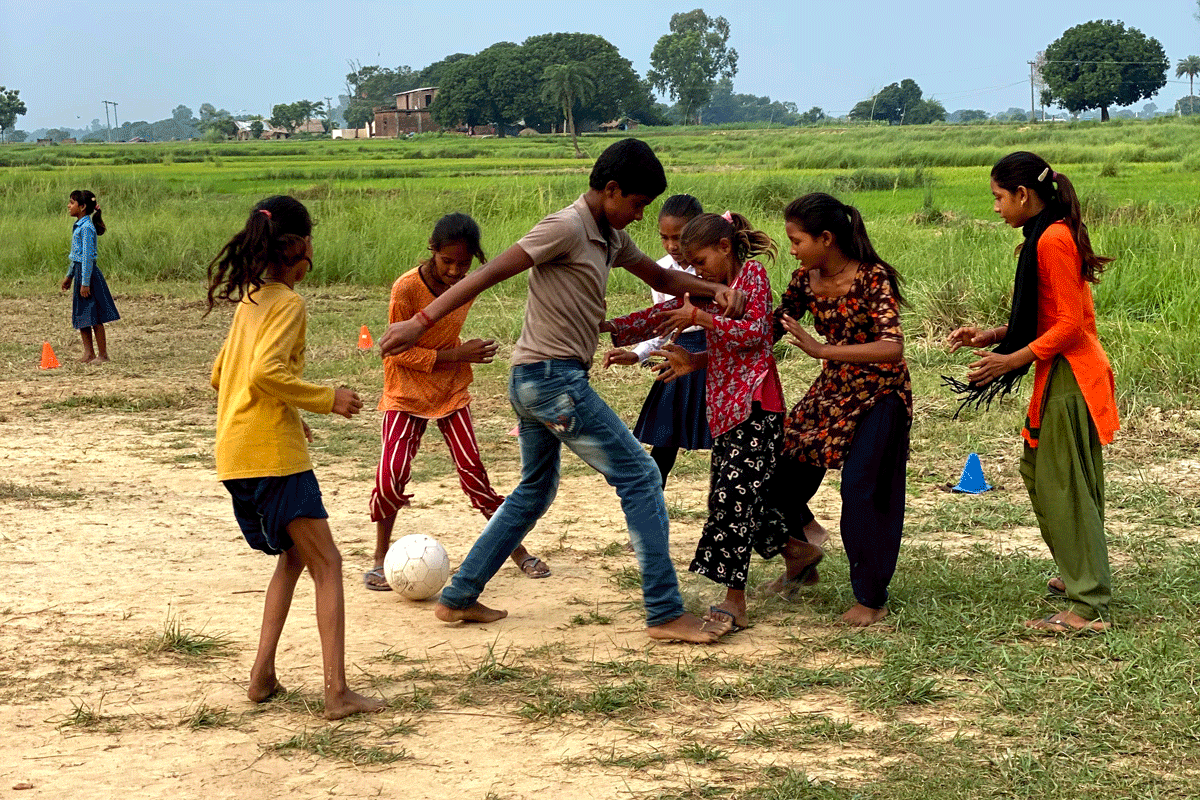
[/caption de imagen]
La asociación con GFC ha ayudado a estas organizaciones a fortalecer su capacidad, ampliar sus programas y mejorar los entornos de aprendizaje basados en el juego para los niños de sus comunidades.
Tanto PSD como Atoot se encuentran entre las 66 organizaciones comunitarias del Alianza para educar a todos los niños (PEAK) Iniciativa apoyada por La Fundación LEGOLa iniciativa brinda apoyo financiero y desarrollo de capacidades a organizaciones locales de todo el mundo que están ayudando a los niños que han experimentado interrupciones educativas relacionadas con la pandemia a prosperar en entornos de aprendizaje que los preparan para el éxito futuro.
A medida que la iniciativa PEAK cumple un año, GFC destaca el trabajo de algunos de los socios de PEAK que están empleando formas innovadoras de hacer que la educación sea más divertida y atractiva para los niños que sufrieron pérdidas académicas en el apogeo de la pandemia.
Foto de encabezado: Un entrenador dirige a las niñas que participan en los programas de Atoot en una sesión de fútbol educativo. © Atoot
